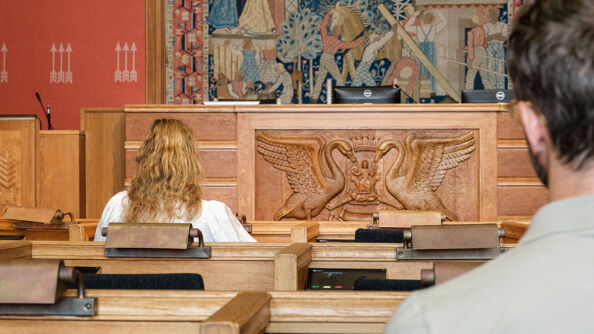The Norwegian model of society
Learn how Norwegian society is organized—from trust and democracy to welfare and work life—and what it means for newcomers.
If you're moving to Oslo or new to living in Norway, understanding the Norwegian model of society can help you navigate life, work, and public services. This model is built on trust, equality, and cooperation between citizens and institutions.

What is "the Norwegian model" of society?
This term refers to how the society functions and is organized in Norway. The model is based on the fundamental values of democracy, human rights, solidarity, and trust.
Norwegians generally have a high level of trust in their government, thanks to low levels of corruption, transparency within institutions, and universal access to public services like education and healthcare. This trust helps create a society where people feel secure, supported, and free.
The Norwegian model aims to balance personal freedom, social equality, and economic growth, and it’s one of the reasons Norway consistently ranks high in global quality-of-life indexes.
Key pillars of the Norwegian model:
1. Organized working life
Norway's working culture is based on the interplay between employers, trade unions, and the government. Their cooperation (known as "trepartssamarbeidet"), impacts everything from legal protections and contracts, wages and working hours, and more.
2. Economic management
Norway's economy is guided by stability-oriented economic policies, international free trade, and coordinated wage formation to promote growth, employment and social equalization.
3. Public welfare
The welfare system in Norway is built on universal access to services like tax-funded healthcare, free education, and income support. These factors contribute to equality and equalization of living conditions, as well as health and employment opportunities.
Norway and the "Nordic model": Shared values & differences
Norway is part of the Nordic countries, a region known for its efficient, open economies and strong welfare states. While Norway's oil wealth contributes to its prosperity, the foundation of the country's social model were laid long before oil was discovered.
Other Nordic countries (such as Denmark, Sweden, and Finland) share similar values of equality, social responsibility, and economic cooperation.
Explore more about welfare, work, and education in Norway:
The Norwegian welfare system
The comprehensive welfare state is based on the National Insurance Scheme.
- Visit the Welcome to Oslo page on health care and welfare to learn about the welfare model, your rights and your duties.
Safe jobs, working condition and taxes
Kindergarten and the school system in Oslo
Interesting in depth articles
Nordics.info can be used for in-debth information about the Norwegian civil society and the welfare state:
- Learn more about the emergence of Norwegian civil society (Nordics.info)
- And learn more about Norway's transformation into a wealthy society with modern welfare (Nordics.info)